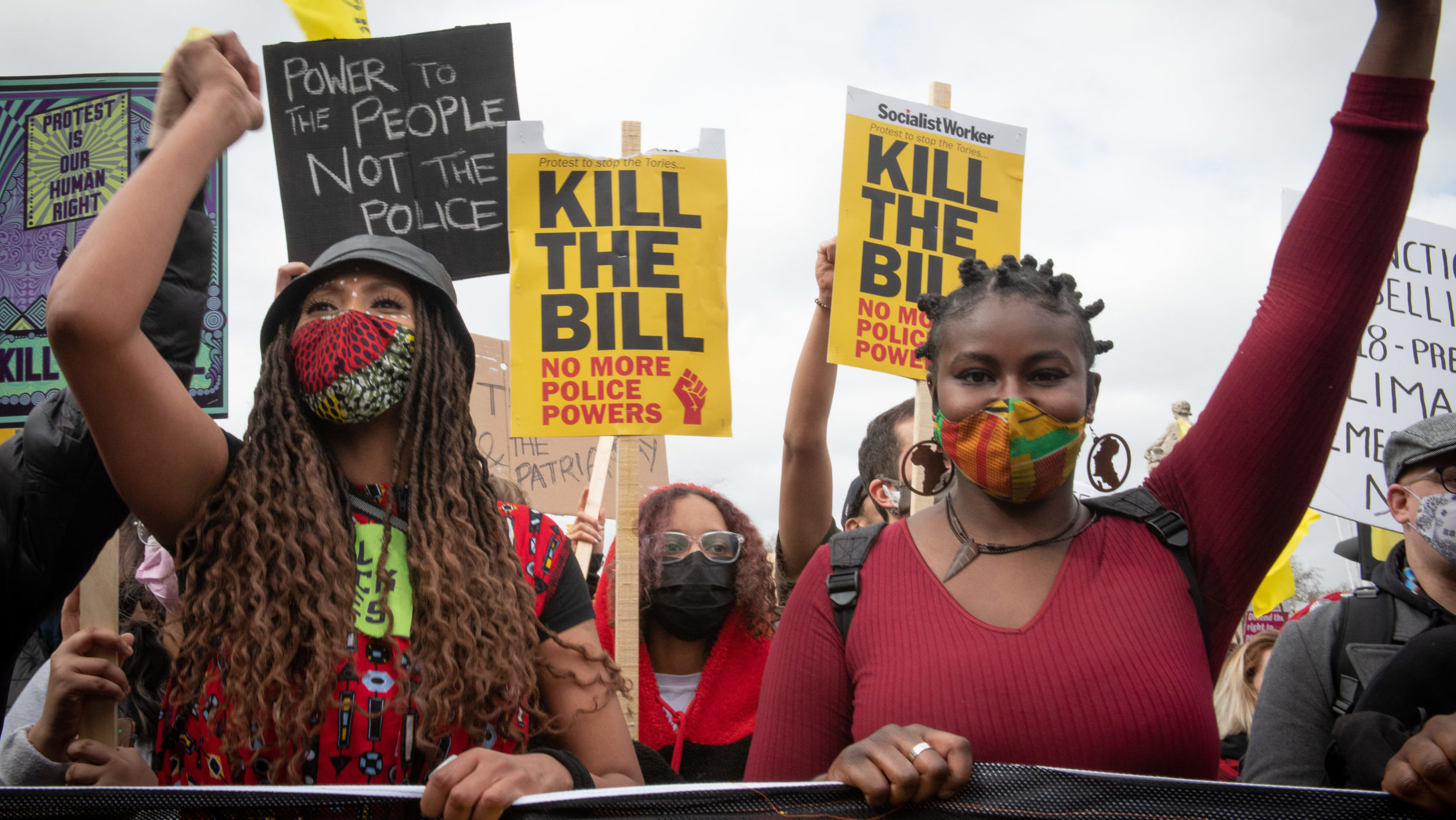Patel has also recently authorised the equipping of volunteer police officers with Tasers. The policing plan states that last year, police discharged or drew a Taser on Black people “at a rate that was six times higher” than white people.
“Powers like stop and search are not evidence-based. They are routinely abused, and are fundamentally based on racial stereotypes,” Emmanuelle Andrews, policy and campaigns manager at Liberty, told The Big Issue.
“Continuing with these powers, even with more training, will still lead to hundreds and thousands of Black people being unfairly harassed and placed in dangerous interactions with the police.”
“If the government is serious about tackling racist policing, we need to see less powers for the police. Instead, we need meaningful conversations with communities, with a focus on fairness, participation and human rights,” Andrews added.
In the plan, the police apologise and admit being “ashamed” that “policing still contains racism, discrimination and bias”, but do not go as far as accepting that the police is still institutionally racist.
“Many people believe policing to still be institutionally racist and have grounds for this view,” the foreword reads.
Advertising helps fund Big Issue’s mission to end poverty
Ilyas Nagdee, racial justice director at Amnesty International UK, said racism is “still rampant” in police forces across the UK.
“It’s disappointing that police chiefs have stopped short of accepting that policing is institutionally racist,” Nagdee said.
“Despite the gloss sometimes put on things by senior officers, little has changed with regards to racism and misogyny in policing in the 23 years since the Macpherson report, and in some respects things are getting worse.”
The Macpherson report, published six years on from the racist murder of Stephen Lawrence in London, labelled the Met Police as institutionally racist for its handling of the murder investigation. In 2020, then commissioner of the Met, Dame Cressida Dick, said the police force was not institutionally racist.
Nagdee also pointed to Taser usage and stop and search powers as tools that would continue to inflame racial bias in the police.
“The overuse of Tasers and of stop-and-search against Black people, racial profiling in the name of countering ‘gangs’, appalling incidents of misogyny and strip-searching in schools are just some of the issues which suggest the police as an organisation remain in denial about its deep-rooted racist thinking and practices,” Nagdee said.
Advertising helps fund Big Issue’s mission to end poverty
Following the publication of the plan, Dr Neville Lawrence, Stephen Lawrence’s father, told The Guardian that by failing to admit that the police is still institutionally racist, there is a risk that nothing will change.
“If you don’t admit to something, how are you going to fix it? How many years since the inquiry and they have still not fixed what is wrong,” he said. “They are not going to change what they are doing.”
“The only person who could change their behaviour and force them to change is the home secretary. Everybody knows they are not going to change,” Lawrence said.
Chief constable Sir Dave Thompson said that while much had been done to tackle racism in policing, “the standard for policing must be higher”.
“The majority of police officers and staff would assert they would not consciously tolerate racism. Racism is prohibited and repudiated in the rules and codes of practice that underpin policing,” he said. “We need to go further and build an actively anti-racist police service that reflects and protects all communities.”
“It’s important to say disparities are not necessarily a sign of discrimination and there may be a range of factors behind a disparity. But we do need to understand the causes, explain them, and reform them where there is not a justifiable reason for the disparity.”
Advertising helps fund Big Issue’s mission to end poverty
The anti-racism action plan arrives on the same day that the mother of a mixed-race 14-year-old accused the Met police of strip searching her daughter while she was on her period, leaving her feeling suicidal.
Olivia, a pseudonym given to the teenager, who has autism and learning difficulties, was arrested after being accused of an attempted knife-point robbery while out with friends. In custody, her mother claims police “cut off her underwear” in front of “grown male officers”.
Her mother told BBC Radio 4’s File On 4 programme that her daughter was “absolutely distraught” by the incident.
Olivia was later found not guilty by magistrates. The Met have told the BBC they are investigating the incident, which happened in December 2020, the same month that Child Q was taken out of an exam at a school in Hackney and strip-searched while on her period.
The police race action plan will be going to consultation, with anyone with expertise or views on the plan urged to complete a survey, before its final version is published.
A Home Office spokesperson said: “The public expect the police to focus on their core role of cutting crime and keeping our streets safer, but it is clear more needs to be done in policing to ensure everyone is treated fairly and without prejudice, regardless of their race or background.”
Advertising helps fund Big Issue’s mission to end poverty









